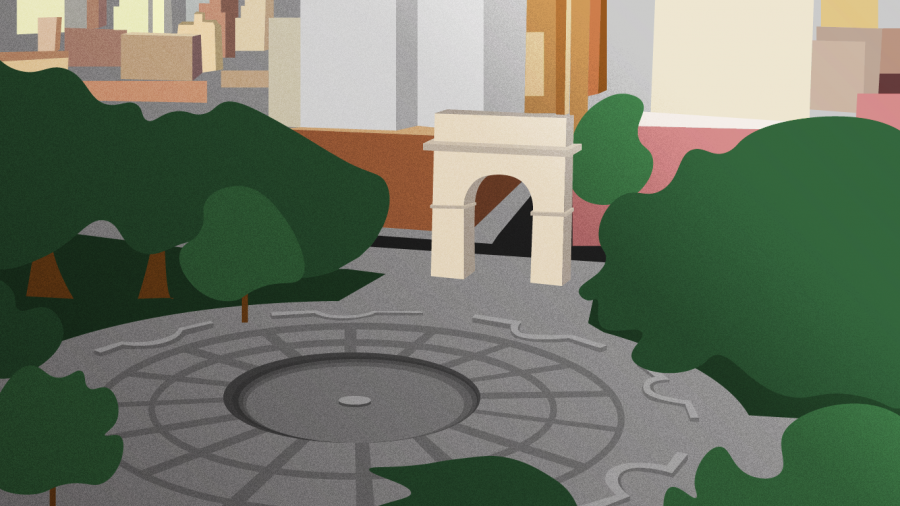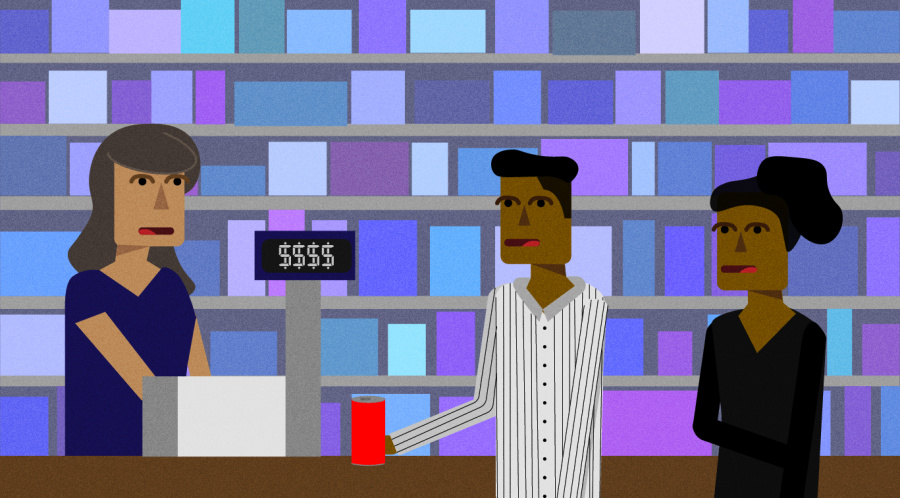It’s been over two months since the first American was reported to be diagnosed with coronavirus during his visit to Wuhan, China. To date, there have been over two million confirmed cases and over 130,000 known deaths in the world. In America, this vicious disease has infected over 640,000 people.
Even our most populated city, which never sleeps, is resting. New Yorkers who are accustomed to small spaces shared with millions of people, our bodies crammed on subways, in taxis, in Ubers or our favorite cafes, are now isolated inside our apartments alone, with relatives or with roommates, while the virus invisibly takes our places outside, forcing over 100,000 New Yorkers into hospitals.
What makes COVID-19 terrifying is we can’t see it, which also makes us negligent to its threat and ignorant of its ruthlessness.
For two years, I’ve lived in Brooklyn. I moved from the Midwest for the hustle, the vibe and to acquire a master’s from New York University. And for two years, I’ve been one of the eight million lives trying to make all my expensive degrees into a big career. But, I never dreamt, even in my wildest ones, that I’d witness The Concrete Jungle tamed.

Even if you’ve never visited New York, you’ve experienced it within film usually along with unfortunate events like “The Day After Tomorrow” or “Deep Impact,” where some scientist or doctor warns the film’s president that something bad was about to happen.
And in these movies, President Blake (Perry King) & President Tom Beck (Morgan Freeman) did not listen until that bad thing happened.
That sounds familiar, doesn’t it?
Last month, during a White House briefing, President Trump announced a “cautious resume” for the American population stating, “Our country was not built to be shut down,” a presumptuous and dangerous encouragement for citizens to be public, again. Even though Dr. Anthony Fauci, the Director of the National Institute of Allergy and Infectious Diseases since 1984, stressed the importance of social distancing to the president and nation.
Most recently, during an interview with Trevor Noah, the medical expert stated COVID-19 has a “high degree of morbidity and mortality,” expressing that if the virus is caught it’s “the worst nightmare you could have.” And despite this contagion’s continual rise, it has not reached its peak. According to Dr. Fauci, “We can’t predict when this will turn around,” stressing a policy cannot dictate the disease’s timespan and that, “The virus is the clock.”
If I’m confident in one thing, it’s that most Americans have recognized this virus doesn’t obey orders, doesn’t care about politics and certainly doesn’t care about us.
Ironically, through isolation and panic, COVID-19 has forced us into an extreme action: to pay attention to each other.
On March 18th, I bussed to Washington D.C., 48 hours before Governor Cuomo’s announcement of a potential city-lockdown. I met my brother, who lives in Virginia, and we decided to road-trip 600 miles to Indiana to be with our parents (which sounds like a script from every American disaster blockbuster).
During the nine-hour drive, we took the standard precautions: we had our hand sanitizers on deck, we only stopped when we needed to. But along the way, from state to state, we were pleasantly surprised by one thing: every store-clerk was unusually friendly. I was surprised because customer service was the last thing on my mind. Usually, as a Black American traveling, the question “Am I safe to stop here?” is how we gauge when to fill up for gas, where we stop for food or where we check-in to a hotel. This inquiry is a safety-guard against stopping in a place where we will be perceived as a threat. Strangely, my racial identity was not the basis of concern; instead, it was COVID-19. Though, the virus is statistically deadlier amongst black Americans.
So, when my brother and I approached an isolated convenience store on top of a hill in West Virginia — it was because it “looked” virus-free, (which in hindsight visual detection is not a deterrent). But once I walked inside, and I saw the cameo decor, I felt I failed the normal protocol, “Am I safe to stop here?”
My brother approached the check-out and slid an energy drink and snack to the cashier. I walked to the coffee bar, which was not available, forgetting self-served beverages are temporarily banned. The clerk looked at us, “How are you guys doing?” Her question was not asked through mandatory kindness. The barrier of generic customer service was cracked wide-open by what we both knew: we could be infected tomorrow, or we could have the infection right now — and with that knowledge, small talk was the only thing not welcomed at the truck stop. Instead, we addressed the elephant, “How crazy is all this?” Our acknowledgment of a polarizing national issue felt foreign. But, because we understood the airborne disease hated us equally, our potential political differences didn’t matter.

As we exited, our farewells were not the standard, “Have a nice day!” but, instead “Be safe out there.” Be safe out there — a very genuine and somewhat sad adieu after purchasing a chicken sandwich and diet coke that you pray is safe enough to touch — but a grateful reminder of humanity while digesting some lunch.
At 11 p.m., we reached Columbus, Indiana, our childhood hometown, waking up our parents who were thankful to see their grown kids, alive and visibly well. But, how long will that last? Will this virus eventually cease and have some mercy?
If you’re religious, I’m sure you’re standing on your faith. If you’re not, you’re still holding onto something similar; and that’s hope. And like this virus, our hope is also invisible but can also be relentless. But unlike this disease, it can’t be stalled by soap or hand sanitizer. And we’re witnessing that perilous fight with our physicians, our nurses, our caretakers and the first-responders; our lifelines against this global plague — but let’s not forget our grocers, our cashiers, our warehouse workers, our airline crews, our truck drivers, our public transportation engineers are all in combat for us, too.
So, for the ones that are willing to pray, please pray.
And to the ones that are willing to give, please give.
But, one thing we all can do for each other at this moment is to stay inside.
And perhaps this mandatory retreat can be spent internally elevating what we’ve been missing while quarantined in our schedules, our hustle, our busyness and our selfishness — exposing that we do have an unadmitted dependency to connect and be around one another.
And because of technology, we can still do the former. One-on-one FaceTimes, group hangouts on Zoom, Instagram challenges, and don’t pretend like you haven’t watched a TikTok video by now.
Even entertained, these virtual forums have revealed the latter; that social media isn’t enough for us. We do miss the lines for brunch. We do enjoy the crowded subways. We really don’t mind the work meeting that could have been an email because being in the presence of humans is better than online interactions.
So, maybe once it’s safe enough to come outside and be closer than six feet, we’ll allow our hearts not to be socially distant, and perhaps compassion and empathy will become outrageously contagious.
Email Brittany Talissa King at [email protected].
























































































































































